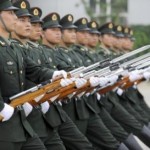External Affairs Minister S M Krishna says that he is “satisfied” at the progress achieved during the India-Pakistan dialogue on July 27 at New Delhi. According to him, his talks with the young and beautiful Pakistani foreign minister Hina Rabbani Khar, were “useful”. Krishna is emphatic that “while being fully cognisant of the challenges that lie ahead, I can confidently say that our relations are on the right track. We have some distance to travel, but with an open mind and a constructive approach, which has been demonstrated in this round of dialogue, I am sure we can reach our desired destination of having a friendly and cooperative relationship between the two countries”. After all, and this Krishna makes it very clear, India would like to see “a stable, peaceful and prosperous Pakistan.
But early this month (July 13, to be precise), there were again attacks on Mumbai. But this time, India decided not to disturb the already scheduled talks with Pakistan. In fact, Krishna, the day after the Mumbai blasts, told reporters, “the foreign minister-level talks with Pakistan will take place as scheduled”.
But then, what is the basis of Krishna’s “satisfaction”? Leave aside the platitudes and all talks of Hina being a refreshing change compared to her tough and loud-mouthed predecessor S M Qureshi, you will see that India has not gained anything. On the other hand, Krishna has gone out of way to grant further concessions which charming Hina can legitimately claims to be gains for Pakistan. Here, two points are noteworthy.
First is the fact since 1990s, the two countries have been indulging in what is called “composite dialogue”, consisting of eight areas or items – peace and security concerns, including Confidence Building Measures (CBMs); Jammu and Kashmir; Siachen; Sir Creek; Tulbul Navigation Project/Wullar Barrage; terrorism and drug trafficking; economic and commercial cooperation; and promotion of friendly exchanges in various fields. However, talks have been periodically suspended whenever there were terrorist attacks on Indian soil, allegedly with Pakistani complicity, not to talk of the hot-war involving armed forces in Kargil in 1999. In 2004, the process, which was stalled after attacks on Indian parliament, resumed after Pakistan gave a commitment that its territory would not be used for any terrorist training and attacks affecting India. Then came the attacks on Mumbai in November 2008. India-Pakistan negotiations again halted. It resumed this February. But early this month (July 13, to be precise), there were again attacks on Mumbai. But this time, India decided not to disturb the already scheduled talks with Pakistan. In fact, Krishna, the day after the Mumbai blasts, that is on July 15, told reporters, “the foreign minister-level talks with Pakistan will take place as scheduled”.
India, under Manmohan Singh, seems to have succumbed to the Pakistani pressure on this Kashmir issue. The latest joint-statement clearly indicates to this effect.
What this means is that India has now dehyphenated terrorism from talks with Pakistan. It is a vital change in the country’s foreign policy which, unfortunately, has not got due attention. Of course, one could argue that if unlike in the past, this time the talks are going on, then the government has reached the conclusion that Pakistan or non-state actors in Pakistan have had no hands in the latest blasts in Mumbai. We all know how the Manmohan Singh government has been systematically trying to prove the theory that terrorism in India is home- grown, and that too it is the handiwork of the Hindu right-wingers. But there are two problems with this theory behind dehyphenation. One, how come within 24 hours of the Mumbai incident, Krishna came to the firm conclusion that there was no linkage this time with elements in Pakistan? Second, how does one explain the outgoing foreign secretary Nirupama Rao’s enough indications to the press over last few months that talks with Pakistan must have a momentum of its own without being influenced by other developments? The inescapable conclusion, therefore, is that the Manmohan Singh government has brought about a subtle change in its Pakistan-policy. Talks would no more be held hostages to terrorism-related incidents.
The second point to note is that all these years Pakistan has been arguing that even if the two countries should discuss all the matters under composite dialogue, primacy must be accorded to the Kashmir, the “core” issue affecting the normalisations between the two countries. India, under Manmohan Singh, seems to have succumbed to the Pakistani pressure on this Kashmir issue. The latest joint-statement clearly indicates to this effect.
The inescapable conclusion, therefore, is that the Manmohan Singh government has brought about a subtle change in its Pakistan-policy.
For instance, the joint statement said that Krishna and Kher “reviewed the status of bilateral relations and expressed satisfaction on the holding of meetings on the issues of Counter-Terrorism (including progress on Mumbai trial) and Narcotics Control; Humanitarian issues; Commercial & Economic cooperation; Wullar Barrage/Tulbul Navigation Project; Sir Creek; Siachen; Peace & Security including CBMs; Jammu & Kashmir; and promotion of friendly exchanges”. But it is silent on any concrete outcome on any of these issues. Only, “the Ministers affirmed the importance of carrying forward the dialogue process with a view to resolving peacefully all outstanding issues through constructive and result oriented engagement, and to establish friendly, cooperative and good neighbourly relations between Pakistan and India”!
In contrast, see what they agreed on Kashmir. “The Ministers held discussions on the issue of Jammu and Kashmir and agreed to the need for continued discussions, in a purposeful and forward looking manner, with a view to finding a peaceful solution by narrowing divergences and building convergences.




